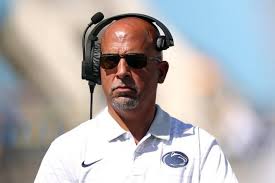James Franklin: Shaping the Future of College Football

Introduction
James Franklin, head coach of Penn State University’s football team, has significantly impacted the landscape of college football since his appointment in 2014. With a focus on player development and a commitment to excellence both on and off the field, Franklin’s coaching strategies and leadership have garnered attention and admiration throughout the sports community.
Coaching Background
Franklin began his coaching career in the 1990s and progressed through various positions before becoming a head coach. He made a name for himself at Vanderbilt University, transforming a struggling program into a competitive team capable of bowl appearances. His tenure at Vanderbilt, where he achieved a school-record 24 wins over two seasons, paved the way for his current role at Penn State.
Achievements at Penn State
Since joining Penn State, Franklin has revitalised the Nittany Lions’ football programme. Under his leadership, the team has consistently ranked among the top in the nation. Notable achievements include winning the Big Ten Championship in 2016 and securing a spot in multiple prestigious bowl games. His emphasis on building a strong team culture and recruiting top talent has contributed to the resurgence of Penn State football.
Community Impact
Franklin’s influence extends beyond the football field. He actively engages in community service and promotes academic success among his players. The “We Are” campaign founded by Franklin stresses not just athletic success but also the importance of developing young men into responsible citizens. His initiative has fostered a sense of unity and purpose among the team and the broader Penn State community.
Conclusion
As James Franklin continues to lead the Penn State Nittany Lions, his vision and innovative approaches serve as a blueprint for successful coaching in college football. His achievements inspire both current and aspiring coaches, while his commitment to player development and community engagement highlights the positive role sports leaders can play in society. Looking ahead, Franklin’s ability to adapt to the ever-changing landscape of college athletics will be crucial in maintaining Penn State’s position as a powerhouse in football.









